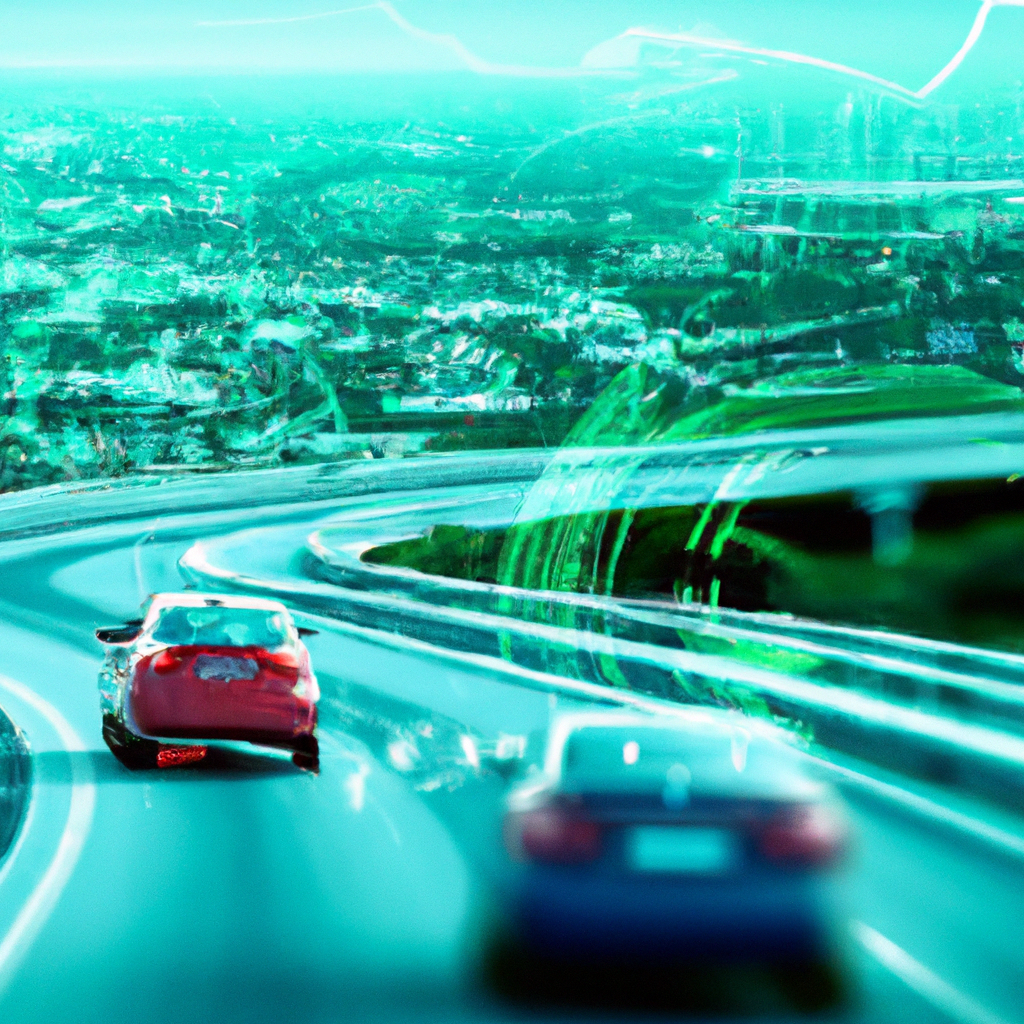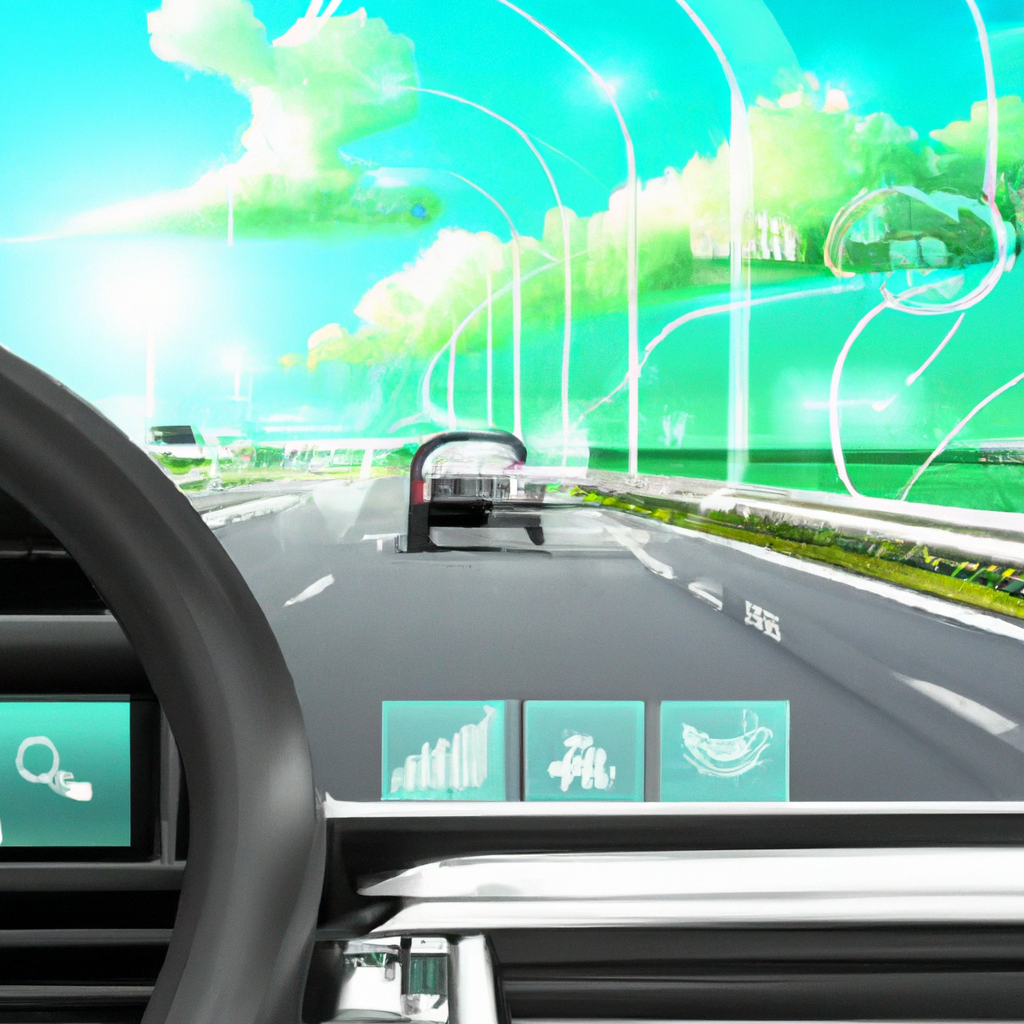In our latest article, we explore the exciting advancements in the automotive industry driven by Google Cloud Platform (GCP). From self-driving cars to personalized driving experiences, GCP is revolutionizing the way vehicles are designed, manufactured, and used. Join us as we delve into the cutting-edge technologies and innovations that are shaping the future of transportation.

Vehicle Connectivity
In the ever-evolving world of technology, vehicle connectivity has become increasingly important in the automotive industry. With the advent of real-time data analysis and processing, vehicles are able to communicate with each other and with the cloud, allowing for a wealth of information to be gathered and utilized.
This connectivity enables improved communication capabilities between vehicles, creating a network of cars that can share information about traffic conditions, road hazards, and other relevant data. By harnessing this data, we can enhance safety and security features in vehicles, ultimately making the roads a safer place for everyone.
Autonomous Driving
Autonomous driving is a groundbreaking technology that has the potential to revolutionize the automotive industry. With the help of machine learning algorithms, self-driving cars can learn from real-time sensor data to navigate the roads safely and efficiently. These algorithms can process and analyze massive amounts of data, allowing vehicles to make intelligent decisions on their own.
Development and testing of autonomous driving systems are crucial in order to ensure their effectiveness and safety. With the integration of cloud computing resources, automakers can simulate various driving scenarios and collect valuable data to refine their systems. This testing process plays a vital role in paving the way for a future filled with autonomous vehicles.

Predictive Maintenance
Predictive maintenance is a game-changer for the automotive industry, as it allows for the monitoring and analysis of vehicle health data in real-time. By continuously monitoring various vehicle parameters and analyzing the data collected, potential issues can be detected early on, preventing breakdowns and reducing maintenance costs.
Optimization of maintenance schedules is another advantage of predictive maintenance. By analyzing historical data, automakers can determine the optimal time to perform maintenance tasks, ensuring that vehicles remain in optimal condition while minimizing downtime. This not only improves efficiency but also enhances the overall longevity of the vehicle.
Supply Chain Management
Efficient supply chain management is essential for the smooth operation of the automotive industry. With the help of cloud-based systems, automakers can achieve efficient inventory management, ensuring that the right parts and components are available when needed. This reduces lead times and ensures timely production and delivery.
Streamlined logistics and distribution are also facilitated by cloud-based systems. By integrating the supply chain with cloud platforms, automakers can track the movement of goods in real-time, optimizing routes and reducing transportation costs. Additionally, demand forecasting and production planning can be improved, allowing for better alignment of supply and demand.

Fleet Management
Fleet management is a critical aspect of the automotive industry, especially for businesses that rely on a fleet of vehicles. With real-time tracking and monitoring capabilities, fleet managers can keep a close eye on their vehicles, ensuring efficient operations and minimizing downtime.
Optimized route planning and scheduling are facilitated by cloud-based platforms, which utilize real-time data and advanced algorithms to identify the most efficient routes for each vehicle. This not only saves time and fuel but also reduces wear and tear on the vehicles, prolonging their lifespan.
Driver behavior analysis is another important aspect of fleet management. By collecting and analyzing data on driver behavior, fleet managers can identify areas for improvement and implement training programs to enhance safety and efficiency. This data-driven approach helps create a culture of responsible driving and ensures a better experience for both drivers and customers.
Enhanced Customer Experience
The automotive industry is constantly striving to enhance the customer experience, and vehicle connectivity plays a significant role in achieving this goal. With personalized in-car services and features, automakers can cater to the unique preferences and needs of individual drivers and passengers.
Intelligent voice assistants, integrated with cloud-based platforms, enable drivers to interact with their vehicles in a natural and intuitive manner. These voice assistants can provide real-time traffic updates, recommend nearby points of interest, and even perform tasks such as making restaurant reservations. By integrating with mobile and smart home devices, vehicles become an extension of the connected ecosystem, providing a seamless and personalized experience for customers.

Data Analytics and Insights
The abundance of data generated by vehicles and customers provides automakers with valuable insights that can drive decision-making and improve overall performance. By collecting and analyzing this data, patterns and trends can be identified, leading to data-driven decision-making for automakers.
Vehicle data, such as mileage, fuel consumption, and maintenance records, can be leveraged to identify areas for improvement in vehicle design and engineering. Customer data, on the other hand, helps automakers understand consumer preferences and expectations, enabling them to tailor their products and services accordingly.
This data-driven approach also allows for proactive measures, such as identifying potential recalls or safety issues before they escalate. By harnessing the power of data analytics, automakers can continually improve their products, ensuring customer satisfaction and loyalty.
Cloud-based Infrastructure
Cloud-based infrastructure offers a scalable and flexible solution for the automotive industry, allowing for seamless integration and efficient utilization of computing resources. This scalability ensures that automakers can handle the increasing amount of data generated by vehicles and customers.
With highly secure data storage and processing capabilities, cloud platforms provide a robust environment for storing and analyzing sensitive data. This is particularly crucial in an industry where privacy and security concerns are paramount. By leveraging cloud-based infrastructure, automakers can focus on their core business while relying on the expertise and infrastructure of cloud service providers.
Furthermore, cloud-based solutions offer a cost-effective alternative to traditional IT infrastructure. By eliminating the need for on-premises servers and maintenance, automakers can allocate resources more efficiently, reducing costs and increasing operational efficiency.

Cybersecurity
With the increasing connectivity of vehicles, cybersecurity has become a critical concern for the automotive industry. Protecting against cyber threats is essential to ensure the safety and integrity of vehicle systems and the privacy of drivers and passengers.
Secure communication between vehicles is crucial in preventing unauthorized access and manipulation of critical systems. Through advanced encryption and authentication mechanisms, automakers can ensure that communication channels remain secure and free from external interference.
Identity and access management play a pivotal role in safeguarding vehicle systems and data. By implementing robust authentication and authorization protocols, automakers can control access to sensitive information and ensure that only authorized individuals can interact with vehicle systems.
Challenges and Opportunities
While the integration of cloud-based solutions and advanced technologies presents numerous opportunities for the automotive industry, it also comes with its fair share of challenges.
The integration of new systems with existing infrastructure is often a complex endeavor, requiring careful planning and execution. Ensuring compatibility and seamless communication between different systems can be a challenging task, and automakers need to invest in the necessary resources and expertise to navigate this process.
Data privacy and regulatory concerns are also major challenges in the automotive industry. With the increasing amount of personal and sensitive data being collected and processed, automakers must comply with stringent privacy regulations to protect customer information. This requires implementing robust data protection measures and establishing clear data governance frameworks.
Another challenge lies in the skills and knowledge gap within the industry. As technology continues to advance at a rapid pace, automakers need to invest in training and development programs to ensure that their workforce is equipped with the necessary skills to leverage new technologies effectively. Collaborations with academia and technology providers can help bridge this gap and foster innovation within the industry.
In conclusion, the integration of cloud-based solutions and advanced technologies is revolutionizing the automotive industry. Vehicle connectivity, autonomous driving, predictive maintenance, supply chain management, fleet management, enhanced customer experience, data analytics, cloud-based infrastructure, cybersecurity – these innovations are reshaping the way automakers operate and deliver value to customers. While challenges exist, the opportunities for growth and innovation are immense, and the automotive industry is driving forward into an exciting future.
